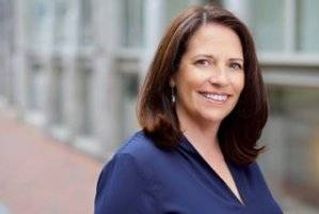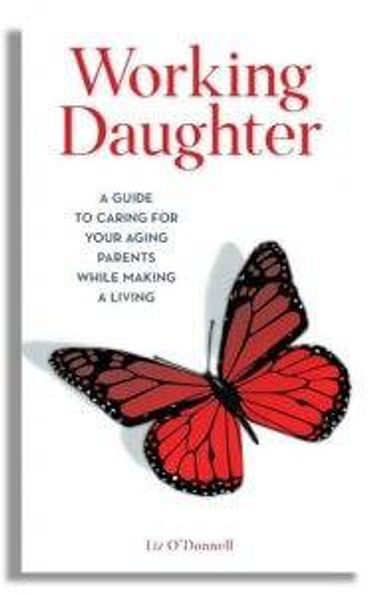Balancing Your Career and Your Aging Parents
Advice for women from 'Working Daughter' author Liz O'Donnell
It often isn’t easy to balance holding down a paying job and being a part-time caregiver for a parent. In a new Home Instead survey of 1,100 employed people who also care for a parent or in-law, 59% felt they must choose between being a good employee and a good daughter or son; that’s up from 47% in 2017. Liz O’Donnell, author of the new book Working Daughter, knows the struggle well — personally and professionally.

A Boston-based marketing executive, in recent years O’Donnell helped manage care for her late mother with ovarian cancer and her late father with Alzheimer’s. In 2018, she became a caregiver for her husband, Kevin, who was diagnosed with pancreatic cancer; he died in March 2019. These experiences led O’Donnell to write the useful book and launch the supportive, content-heavy Workingdaughter.com site and 2,291-member Working Daughter Facebook community group.
"When you go to websites that say 'It's a blessing to be a caregiver,' you feel like you are the only one having terrible thoughts."
I interviewed O’Donnell to hear what she learned from the elder care attorneys, hospice nurses and working daughters she interviewed for the book and to get her guidance for women — and men — juggling care and career:
Next Avenue: Why did you write the book?

Liz O’Donnell: I was seeking help because my parents needed more and more care. I had stress insomnia and was waking up at 3 in the morning, looking in Google to find how to balance career and care. The web sources were either sickly sweet — saying things like, ‘Just convene a family meeting,’ which is fine for the perfect family, but how many of us are in one? — and the government websites said: ‘Click here for assisted living.’ I couldn’t find what I needed.
So, I started to build a working daughter website and then a Facebook group for women to ask each other questions and vent and cry. And then I wrote the book.
I wanted caregivers to know they weren’t alone and that there was help available even for people whose families weren’t perfect. And I wanted caregivers to know that it was perfectly normal to have thoughts like, ‘I don’t want to do this anymore’ or ‘I can’t take it.’ When you go to websites that say ‘It’s a blessing to be a caregiver,' you feel like you are the only one having terrible thoughts.
Why is the book called Working Daughters and not Working Daughters and Sons? Women aren’t the only one balancing jobs and caregiving.
I was working full-time and caring and had to focus on what I knew. And I’d always written to a female audience. Also, I wanted to focus on issues that women face, like not earning the same salary as men due to taking off time for raising kids or scaling back hours to care for parents.
Would your advice for men be any different than what you advise women?
Some of the issues that come up are universal, like making space for your life and figuring out what matters most to you and balancing your career with that.
How difficult is it for women with paying jobs to do their work and also provide caregiving for loved ones?
It’s really challenging. I hope the more we talk about it, the easier it might become.
When you have a child, you know roughly when you will be out of work and you can set up for that time with maternity and paternity leave. You know when your child will go to preschool and for how many hours. You know what time the bus is coming, and you know when summer vacations are. With elder care, the phone could ring at work at any moment.
And there are so many factors for elder care that are different from in the past. Families are often dispersed, and people are having fewer children, so the caregiving responsibility often falls on one person.

What are the biggest challenges?
The unpredictability, and learning how to exit with grace [during the day] with all your work covered.
Another thing I hear in the working-daughter community is the mentality that caregiving has interrupted their lives and put their lives on hold. I went through that myself. One of the messages I try to share with women is we have to accept our lives as they are.
It means staying networked even if we’re not at work, so when we’re ready to go back, we’re still connected to people who can help us. And it means staying relevant, so we’re up-to-date on technology and on what's happening in our industry, even if we’re not active in it.
Your first chapter is called ‘Accept.’ What do you mean by that?
I’m the youngest of three daughters and didn’t feel suited to be a caregiver for my parents. I had this attitude of: ‘Why me?’ Eventually, I shifted from resisting. The only way to go through the caregiving experience is to deal with it.
Another chapter is ‘Prioritize.’ What do you mean and how should women do it?
One of the things that exists in abundance in the working-daughter world is guilt. I get it. There’s always more you can be doing.
It’s important to say to yourself: ‘What are the parts of my life that really matter to me?’
Which are you going to prioritize and where are you going to glide? Don’t feel bad about stuff that takes a back seat.
How well do you think employers deal with employees who have family caregiving duties?
They want to do the right thing. Where I see it break down sometimes is at the line manager perspective. It’s important for companies to make sure caregiving policies are part of their culture and that middle managers are trained to work with employees around their care lives.
Another thing is training employees to say things like: ‘I need to leave Wednesday at three and here’s how I’m going to cover and when you can expect me back.’ As opposed to: ‘My mother’s sick. Do you mind if I leave?’
Are employers getting better at this?
Elder care benefits are on the decline, which is alarming.
What I’m hearing anecdotally from the working-daughter community runs the gamut from ‘My employer is cold-hearted and doesn’t get it’ to “I have the most amazing boss and that’s what makes it possible for me to do the caregiving.’
Do you see any reason to think employers will do better in the future for employees who are also family caregivers?
I’m hopeful.


